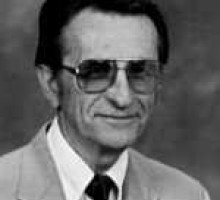
Reviews
I found this book fascinating. It is an easy read, with lots of arresting stories of faith under test. Its amazingly thorough research, which comes through on every page, makes the book convincing.
Mennonites, Amish, and the American Civil War is well worth exploring.
Fascinating even to the lay reader.
A valuable book that gives Brethren a source to turn to when considering the experiences of our own spiritual ancestors.
Enriches our understanding of the impact of the Civil War on Mennonites and Amish, and on American religious groups in general. In addition, the authors have enhanced our knowledge of the influence that religion had on the war.
By highlighting the struggles of these religious outsiders who strived to keep the church distinct from the world, Lehman and Nolt have produced an insightful study that further elucidates the centrality of religion for a proper understanding of the Civil War.
Civil War scholars can learn much from this book.
In this well-written and researched volume, Lehman and Nolt offer a much-needed analysis of the Mennonite and Amish experience of the Civil War.
Mennonites, Amish, and the American Civil War is solid... the research is meticulous and admirable.
Mennonites, Amish, and the American Civil War should attract the attention of both serious religious scholars and anyone else interested in gaining a better understanding of the Anabaptists' wartime experience.
Lehman and Nolt have produced a valuable study that reminds scholars of, and would demonstrate for students of the Civil War or religious history, the religious pluralism in the nation and, to a lesser degree, in the South.
An impressive work in every way: gracefully written, broadly researched, careful and measured in its conclusions. It is likely to become the definitive work on its subject.
In this fascinating study, Lehman and Nolt perform a miraculous feat: they find a small unexplored backwater in the immense sea of literature on the American Civil War.
A fascinating book... wonderfully written, flows well and offers fresh information and a new perspective on the home front in the Civil War that is rarely (if ever) covered in other works.
Without question, this work by Lehman and Nolt should be on the bookshelf of anyone interested in 'peace churches,' or pacifists, regardless of the time period.
The first serious, comprehensive study of this important and neglected subject. A well researched and carefully argued treatment that reminds us that not all churches fell into lockstep support for either the Union or the Confederacy.
Book Details
List of Tables and Maps
Acknowledgments
Introduction: Religion, Religious Minorities, and the American Civil War
1. Politics and Peoplehood in a Restless Republic
2. Our Country Is at War
3. Conscription
List of Tables and Maps
Acknowledgments
Introduction: Religion, Religious Minorities, and the American Civil War
1. Politics and Peoplehood in a Restless Republic
2. Our Country Is at War
3. Conscription, Combat, and Virginia's "War of Self-Defense"
4. Negotiation and Notoriety in Pennsylvania
5. Patterns of Peace and Patriotism in the Midwest
6. The Fighting Comes North
7. Thaddeus Stevens and Pennsylvania Mennonite Politics
8. Did Jesus Christ Teach Men to War?
9. Resistance and Revenge in Virginia
10. Burning the Shenandoah Valley
11. Reconstructed Nation, Reconstructed Peoplehood
Appendixes
A. The Sonnenberg Petition
B. Mennonites Identified on Roll of Exemptions
List of Abbreviations
Notes
References
Index







